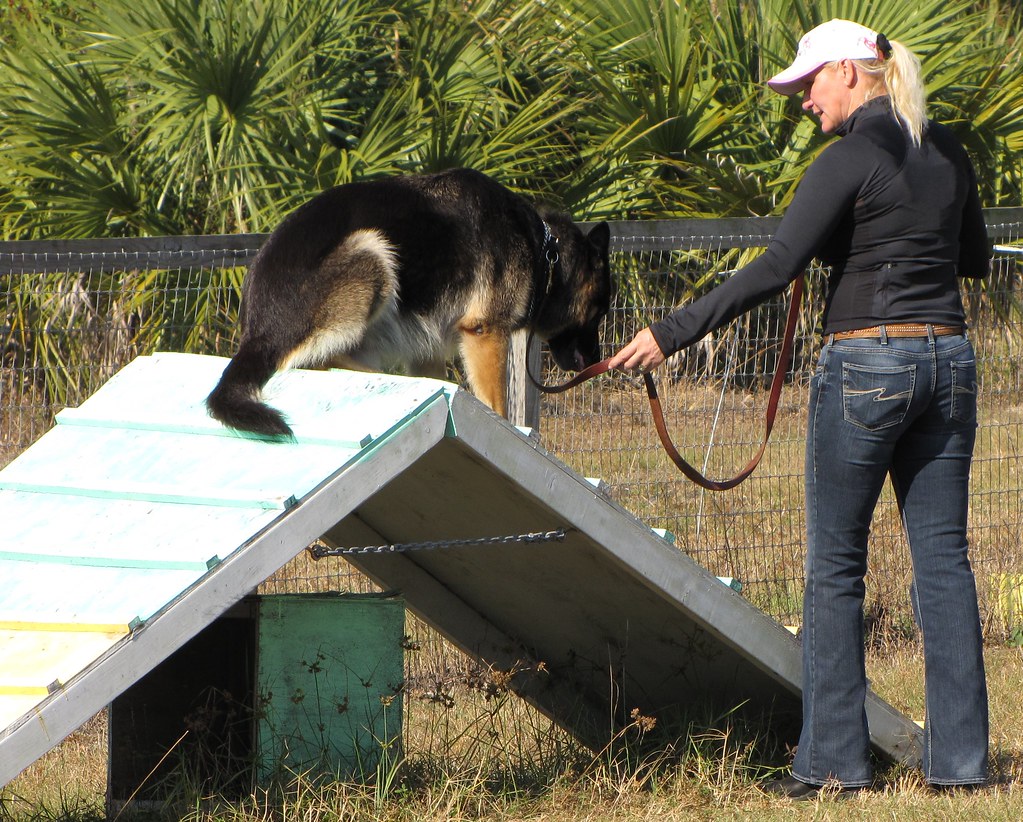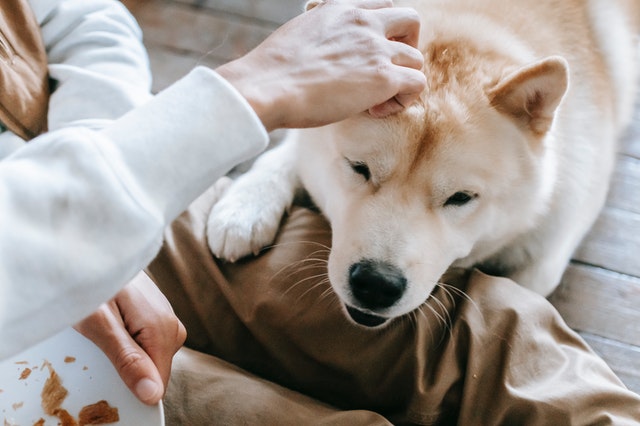
Are you a dog lover? Do you like spending your time with these gorgeous furry creatures and enjoying the companionship they provide? If your answer is “Yes”, so maybe you have considered the possibility to turn your hobby and passion, into your regular job. We all know that the best job is the one that we do with love. If you have ever considered the opportunity to work as a dog trainer you may want to know where to start, what skills and training background will be required, and how you can actually become a real dog trainer.
Where to Begin
If you want to develop your skills in this field, you may need to start training your own dog. First, you can try teaching him/her basic commands like “sit”, “stay”, “wait”...etc. Gradually you can try with more difficult ones - touching a target, opening/closing doors, pulling objects on command...etc. Step by step you will increase the distance between yourself and your dog during the training process and add more distractions in your dog’s surroundings. You will learn how to read the dog’s body language and how to respond to it accordingly.
Training your own dog is the easiest way to start your journey to the desired goal as a professional trainer, as you are “allowed” to make mistakes. This means that your own dog will love you and forgive you even if your training techniques are not the most appropriate ones. As a beginner, you are likely to make mistakes like giving your canine treats as a reward for performing unwanted behavior. Step by step you will learn to show your furry friend that you are the alpha, you will also learn to behave properly even when your dog does not perform the behavior you expect, and most important - you will learn how to be calm and patient, as these are essential qualities that every dog trainer must possess. You will learn how to avoid losing your temper so that your dog will be motivated and not get stressed. 
Once you master your skills at reading your dog’s body language and training him/her tasks with a gradually increasing difficulty level, you need to start paying attention to the technical part of the training, that is also really important. What does that mean? The technical part features values like rate of reinforcement (how often you give your canines treats/toys as a reward), placement of reward (at which point you give your dog a reward). If you want to encourage a certain behavior you need to give your canine a treat at the moment when he/she is performing it. i.e. if you want him/her to fulfill the command “stand”, you should give him/her the treat at the moment when he/she stands up, not before that and too long after that, as he/she needs to make the connection between the tasks and the reward. This is also connected with the proper timing.
Why Not Get Your Dog Certified?
If you feel confident enough that your doggy already has a training background and you both are doing a good job as a team, you may want to verify your skills and the skills your furry friend has obtained. You can consider applying for the CGC (Canine Good Citizen) or the advanced evaluation tests: Advanced CGC with the “CGCA” title (AKC Community Canine); the AKC Urban CGC (AKC Urban Canine Good Citizen). Passing the CGC test will give you the basics for your further development in the dog training field. If you have a puppy, you may want to get the AKC S.T.A.R Puppy award first, before getting the CGC. The AKC S.T.A.R Puppy is not mandatory and you can move directly to the CGC, however, it will help you build a good training background for your pup.
Train Your Relatives’ and Friends’ Dogs
As a next step you may want to consider is training other dogs. i.e. the dogs of your family members or friends. This is important, as you will learn to apply different techniques and approaches. The ones that worked with your dog, may not be the right ones for other dogs. You will learn to be flexible, adaptive and to acquire knowledge of new techniques. Training the dogs of our relatives or friends is beneficial, as you will be able to not only train the dogs but to help people train their dogs as well. The ability to work with people is crucial for your success in this field. An essential part of the job as a trainer is to teach owners how to train their dogs properly. This means that a good dog trainer should be able to encourage the owners and guide them in the right direction towards success.
How Can You Educate Yourself?
Read Books & Study
You can read books about animal behavior science, as well as books about the profession as a trainer. You can also learn systematically about dog training via online dog training courses.
Participate in-Training Classes
You may need to enroll in training classes to see how trainers conduct training and how they apply positive reinforcement approaches based on science to the training process. You will be able to monitor the interaction between trainers and dogs- how the trainers teach the dogs and how the canines respond to them. Not only you but also your dog can participate a training class even if he/she has already some training background. By enrolling your dog in a training class, you will be able to monitor the training process from two different points of view- as a student and as a trainer. We would recommend that you make a detailed research about the credentials of the training schools/organizations/professional trainers whose courses you and your dog will participate.
You can find professional training organizations/ professional trainers alphabetically listed on the site of the Certification Council for Professional Dog Trainers. You can use the list for your reference in the case that you consider contacting a professional organization.
Volunteering
Another idea that may be helpful for your future carrier as a dog trainer is volunteering in local shelters or charity organizations. This will be really beneficial for you, as you will get in touch with many unfamiliar dogs and you will need to apply different approaches. You will learn the proper behavioral and training techniques and will have the opportunity to help local trainers.
Become an Apprentice
If you want to be good in a certain field and pursue a career in this field, you need a lot of practice. That is why the next step in the journey to your carrier as a dog trainer should be the apprenticeship by a recognized trainer. This is the most common way on how this profession can be learned. As an apprentice you will watch the trainer, take notes and at some point you will be able to assist them. The apprenticeship will give you the opportunity to be a part of the training process and be supervised by a professional. You will receive regular feedback and recommendations so that you can improve your skills. Please note, that it may take up to a year or more, if you decide to be an apprentice under a professional trainer. Commitment, consistence and patience are needed for you to succeed in this process.
Become a Member of a Professional Training Organization
Joining a professional training organization will give you access to various classes and courses, moreover, you will be included in the organization’s database which will make it easier for your future clients to find information about you. Being a member of a professional organization will make your clients trust you, as you will trustworthy and engaged in the training process. The American Kennel Club recommends organizations like the Association of the Professional Dog Trainers. The APDT requires the so-called continuing education units (CEU) of different certifications so that trainers can maintain the credentials they already have. Online webinars, multi-week courses and an annual conference have been offered.
Do You Need a Certificate and Where To Get One?
You may wonder if a certificate for a professional trainer is required and where to get one.
There are no specific requirements about the education that you need to have or the certificates that you need to provide. Having a certificate is only recommended, as it will help you prove the skills you possess before your clients.
You can get certified with the Certification Council for Professional Dog Trainers. There are two types of certification you can obtain through the CCPDT:
1. Certified Professional Dog Trainer-Knowledge Assessed (CPDT-KA)
Your knowledge and skills in different areas like instruction, learning theory, training techniques...etc. will be evaluated.
You have to meet certain requirements to be eligible for examination.
-
You need to have a minimum experience in dog training of 300 hours for the last three years;
-
You need to have a signed attestation statement from a certificant or a veterinarian from the CCPDT;
-
You need to sign and submit the Standards of Practice and Code of Ethics;
-
You need to sign and submit the Least Intrusive, Minimally Aversive (LIMA) Effective Behavior Intervention.
This exam features 180 questions of a multiple-choice type. This exam has been conducted in the US and Canada.
2. Certified Professional Dog Trainer-Knowledge and Skills Assessed (CPDT-KSA)
The examination for obtaining this certificate will evaluate your skills in expert training and instruction through exercises of hands-on type.
The requirements that you need to meet to be eligible for the examination are:
-
You need to have a CPDT-KA;
-
You need to apply online and upload a video of assigned exercises;
-
You need to comply with the Standards of Practice and Code of Ethics;
-
You need to comply with the Least Intrusive, Minimally Aversive (LIMA) Effective Behavior Intervention;
-
There is an examination fee that will be charged.
The examination is conducted over a testing period of 3 weeks. It features 4 exercises of hands-on type that have to be recorded. The location can be chosen by the applicant.
3. Online Dog Training Certification Programs
The certificates issued by the Certification Council for Professional Dog Trainers are considered the most prestigious in the training dog industry. However, we would like to mention some online dog training certification programs that along with the certification by the Certification Council for Professional Dog Trainers are deemed some of the best for 2021:
-
Karen Pryor Academy;
-
International School for Certified Dog Trainers;
-
Penn Foster Dog Obedience Trainer/Instructor Career Diploma;
-
Victoria Stilwell Academy;
-
Dr. Ian Dunbar's SIRIUS Dog Trainer Academy;
-
Animal Behavior College;
-
Top Tier K9.













